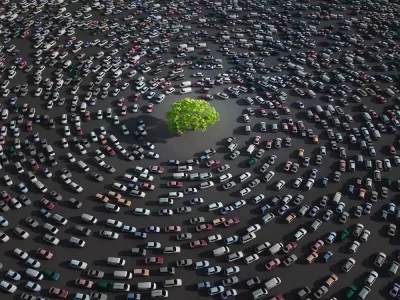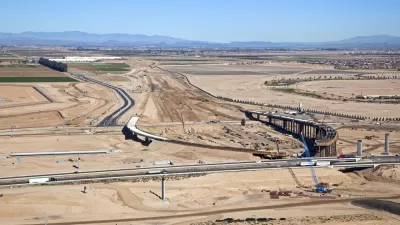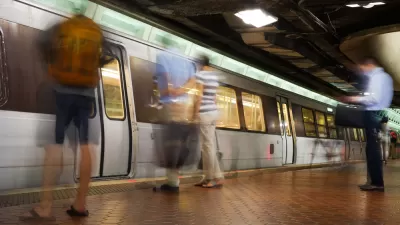Given a recent dire report on climate change from the IPCC, Laura Bliss underscores the point that those who have the ability to do so should make changes to how they get around, and pronto.

The UN Intergovernmental Panel on Climate Change recently released a report effectively laying out the small odds we'll manage to avoid extreme effects of climate change. In light of those findings, Laura Bliss makes the case that individual action can still make a difference. She writes, "the IPCC also makes clear that no action will make things far worse. And it describes critical areas where habits and individual decisions—'demand-side mitigation and behavioural changes,' in the words of the IPCC report—can make an difference."
In the U.S., Bliss says, the current healthy economy is driving up transportation emissions, even as they decline from other sectors. "Even at the local level, where some of the most promising action of carbon emissions have emerged in the era of Trump, the arrows are not pointing in the right direction. Transit use is declining and new vehicle-based modes increasingly populate the roads."
Given that state of affairs, "those with the ability to decide whether to drive, walk, scoot, hail an Uber, take the bus, or book a flight are the critical agents in the mode shifts the IPCC describes."
FULL STORY: The Planet Can't Survive Our Transportation Habits

Planetizen Federal Action Tracker
A weekly monitor of how Trump’s orders and actions are impacting planners and planning in America.

Maui's Vacation Rental Debate Turns Ugly
Verbal attacks, misinformation campaigns and fistfights plague a high-stakes debate to convert thousands of vacation rentals into long-term housing.

San Francisco Suspends Traffic Calming Amidst Record Deaths
Citing “a challenging fiscal landscape,” the city will cease the program on the heels of 42 traffic deaths, including 24 pedestrians.

Amtrak Rolls Out New Orleans to Alabama “Mardi Gras” Train
The new service will operate morning and evening departures between Mobile and New Orleans.

The Subversive Car-Free Guide to Trump's Great American Road Trip
Car-free ways to access Chicagoland’s best tourist attractions.

San Antonio and Austin are Fusing Into one Massive Megaregion
The region spanning the two central Texas cities is growing fast, posing challenges for local infrastructure and water supplies.
Urban Design for Planners 1: Software Tools
This six-course series explores essential urban design concepts using open source software and equips planners with the tools they need to participate fully in the urban design process.
Planning for Universal Design
Learn the tools for implementing Universal Design in planning regulations.
Heyer Gruel & Associates PA
JM Goldson LLC
Custer County Colorado
City of Camden Redevelopment Agency
City of Astoria
Transportation Research & Education Center (TREC) at Portland State University
Jefferson Parish Government
Camden Redevelopment Agency
City of Claremont





























